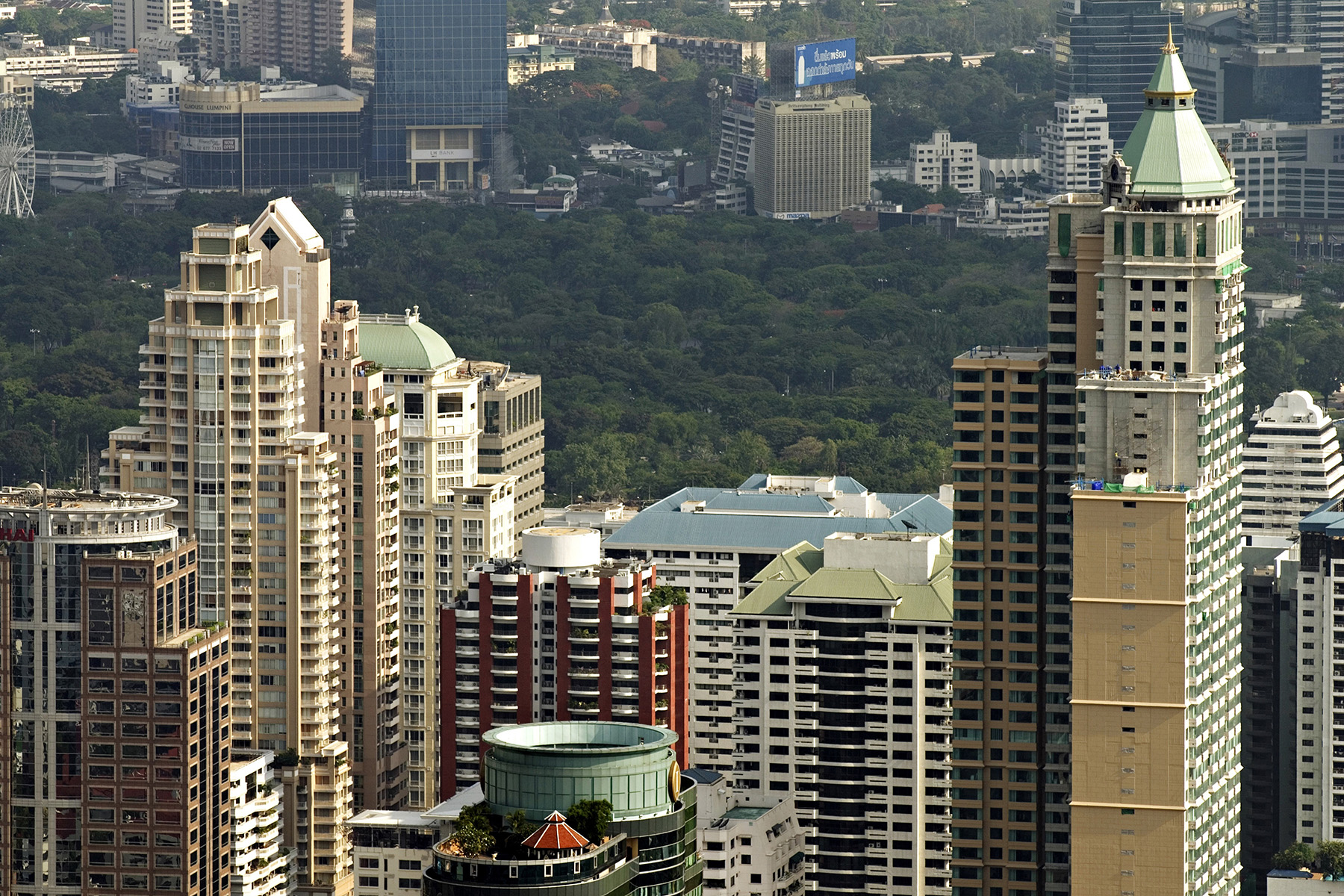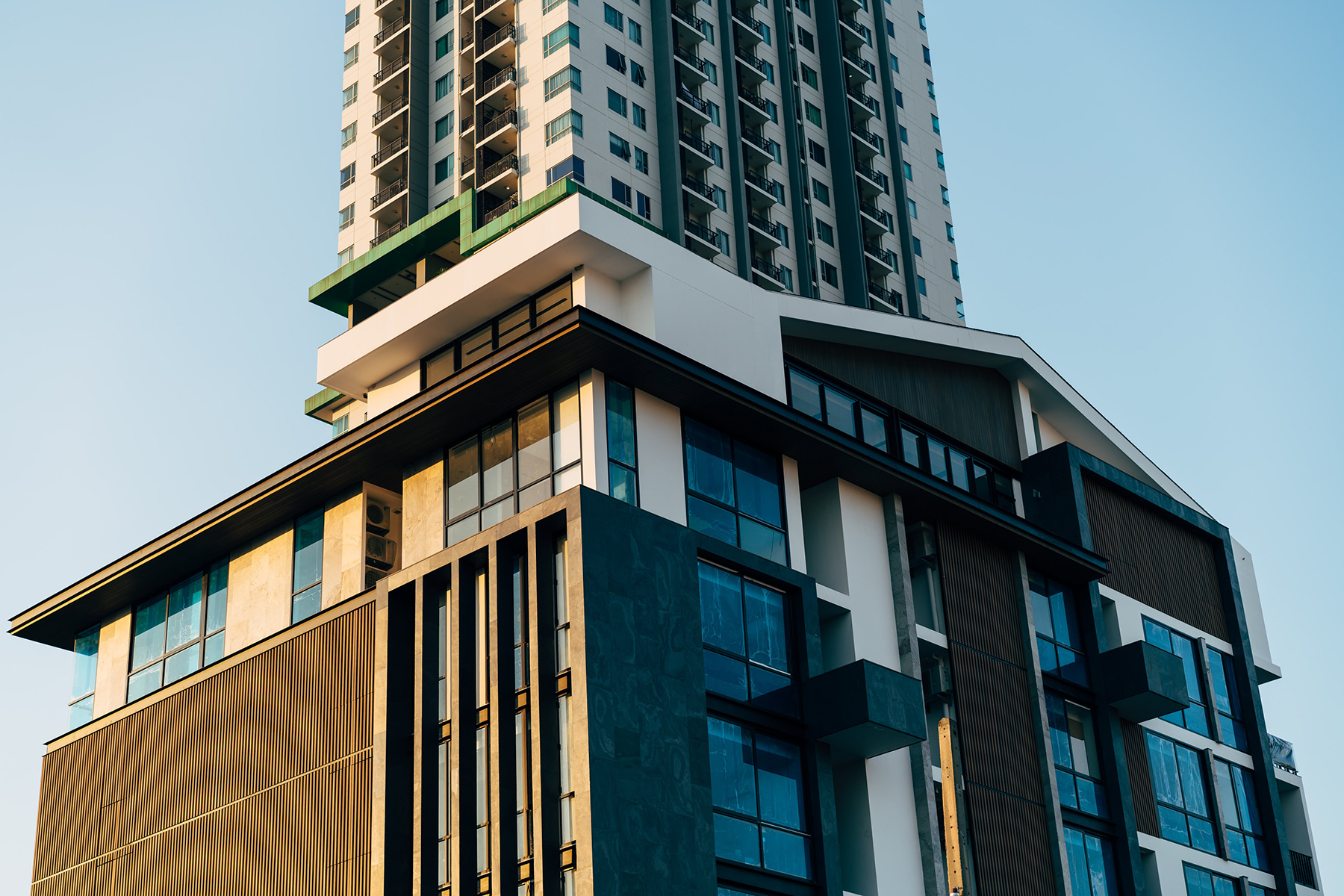Getting a mortgage in Thailand as a foreigner may come with a few extra steps, but it’s entirely possible. While Thai banks have certain restrictions and lending conditions for non-citizens, many expats do qualify for home loans. With the right information, you can better understand the process and explore your mortgage options with confidence.
Read on to learn more about these topics:
- Mortgages in Thailand
- Can you get a mortgage in Thailand as a foreigner?
- Mortgage rates in Thailand in 2025
- How much can you borrow for a Thai mortgage?
- Most common types of mortgages in Thailand
- Using a Thai mortgage for other purposes
- Green mortgages in Thailand
- How to apply for a mortgage in Thailand
- Help getting a mortgage in Thailand
- Mortgage fees and costs in Thailand
- Taxes and tax relief on Thai mortgages
- Do you need property insurance to get a Thai mortgage?
- Mortgage repayments in Thailand
- Refinancing a mortgage in Thailand
- Useful resources
Sirelo
It’s no secret that moving abroad can be stressful. Sirelo’s team of removal advisers is here to help. They provide five free quotes from international shipping companies so you can find the best options at the best prices. Take the stress out of your relocation to Thailand with Sirelo.
Mortgages in Thailand
Housing loans in Thailand are widely available to citizens through local banks, with the Government Housing Bank (GHB) financing about 34% of mortgages nationwide. This state enterprise helps low and middle-income Thai citizens secure home financing.
Unfortunately, most local Thai banks are less willing to loan to expats unless they meet strict criteria, which you’ll learn below.

Can you get a mortgage in Thailand as a foreigner?
Securing a Thai mortgage can be tricky for internationals. Banks in Thailand have strict requirements and may still refuse a loan. In general, you must meet one of the following criteria to qualify:
- Be between 20 and 55
- Have permanent residency
- Have worked and lived in Thailand for over a year
- Be married to a Thai citizen (as a guarantor)
- Hold dual citizenship
- Be a Thai citizen

You must also meet all of the following:
- Have a stable source of income
- Hold the down payment amount in cash
- Have a good local credit rating via the National Credit Bureau (NBC – ข้อมูลเครดิตแห่งชาติ)
As a result, self-employed and freelancers face stricter rules in Thailand. Aside from having to provide more detailed financial statements, freelancing may also affect the percentage you can borrow. As a result, anyone applying for a Thai mortgage should look at increasing their local credit rating, for example, by paying their Thai credit card bills on time.
While more complicated, foreigners can still apply for mortgages. Generally, this is easier when purchasing condominiums, which are not subject to the same strict land ownership restrictions as other properties. As a result, expats can own the entirety of an apartment, which helps secure financing.
Thai banks, therefore, feel more confident approving home loans for condos as there are fewer legal hoops to jump through.
However, you can benefit from the legal loopholes when purchasing property with a Thai partner. In this case, the non-Thai buyer can be the guarantor when securing a local mortgage. The land, however, will be under the sole name of the Thai spouse.
The loan-to-value ratio (LTV – อัตราส่วนสินเชื่อต่อมูลค่า) is generally less favorable for expats than it is for Thai locals. LTV refers to the maximum amount you can borrow with a secured loan determined by the market value of the asset you use as collateral. Typically, you can borrow up to 70% of the property’s value. However, a bank is more likely to loan only up to 50% of the property’s value in Bangkok.
Alternatives include an MBK Guarantee property loan: an expat-friendly home loan that lends up to 50% of the value of a Bangkok condo. You can also apply for a specialist overseas mortgage from a lender in your home country. This avenue tends to have higher restrictions due to the larger risks involved.
Mortgage rates in Thailand in 2025
Mortgage rates in Thailand are tied to global interest rates, which are now falling slightly after a period of increase. According to the Global Property Guide’s 2025 property market analysis of Thailand, interest rates for home loans in Thailand are currently between 4.9–5.9% a year. The Bank of Thailand reduced its key interest rate to 1.75% in April 2025, down from a nine-year high of 2.5% in 2023.

Internationals can expect to pay higher mortgage rates than locals in Thailand. These rates typically sit between 5–8% but can be as high as 12% through a mortgage broker.
If you qualify for a Thai variable loan, interest is usually pegged to a bank’s minimum loan rate (MLR) or minimum retail rate (MRR). You can check the latest MLR and MRR interest rates on the Bangkok Bank’s website. As a general rule, it’s unlikely that any Thai bank will offer you a rate below this.
How much can you borrow for a Thai mortgage?
The amount you can borrow from a Thai bank will depend on:
- Your age
- Your credit rating
- Your income
- The property value
- Your residence status
Thai banks are reintroducing loans of up to 100% of the property’s value for Thai nationals in May 2025, having previously capped the LTV ratio at 90% for homes valued above ฿10 million. The LTV ratio is lower for those buying second or third homes.
Banks are not obligated to lend you this total amount, and internationals are subject to stricter rates. As such, you can realistically expect to borrow between 50% and 70% of a property’s value with a Thai mortgage.
Furthermore, there are no specific regulations in place that limit repayments. However, spending no more than 40% of your monthly income on a mortgage makes financial sense.
Thai mortgage calculator
Mortgage calculators are useful estimation tools that have access to Thailand’s general interest rates. You can get a reasonable estimate of your monthly repayments with these calculators:
Most common types of mortgages in Thailand
The main two types of mortgages in Thailand are:
- Fixed interest rate (จำนองอัตราดอกเบี้ยคงที่)
- Variable interest rate mortgages (จำนองอัตราผันแปร)
Here’s how they work.
Fixed-rate mortgage
Fixed-rate mortgages set the interest paid over a limited period. This can be from two to five years but is typically around three years in Thailand. They are beneficial for households wanting to control their budgets. As such, you’ll know exactly what your monthly repayments will be.

Once the term has ended, the mortgage will revert to a variable rate, or you can negotiate a new fixed-rate term with your bank. Fixed rates provide more stability in repayment but may come with higher interest costs. Lenders offer these mortgage terms for a maximum of 30 years, depending on the buyer’s age.
Variable-rate mortgage
Variable (or floating) rates fluctuate based on the bank’s prime interest rate. In Thailand, these are usually applied as a minimum lending rate (MLR – อัตราดอกเบี้ยเงินกู้ขั้นต่ำ) or minimum retail rate (MRR – อัตราดอกเบี้ยลูกค้ารายย่อยชั้นดี). This makes them riskier than fixed-rate mortgages, but they offer greater benefits when interest rates drop.
Many Thai mortgages have variable hybrid rates. For example, a bank may offer mortgages as follows:
- First two years: MRR minus 2%
- Third year: MRR minus 1%
- Subsequent years: at the MRR
Such loans typically have terms of up to 15 years, but you can find longer mortgages of up to 30 years.
Using a Thai mortgage for other purposes
Thai banks also offer mortgages for other purposes, including:
- Commercial mortgages: For the purchase of business properties. These may also be referred to as corporate loans (สินเชื่อองค์กร) or business loans (สินเชื่อธุรกิจ). These are typically available for new businesses that have operated for over three years.
- Lease mortgages (จำนองสัญญาเช่า): Foreigners can buy property with the help of a land lease. This is a complex solution to Thailand’s strict land ownership laws.
- Renovation loan (เงินกู้ปรับปรุง): For home improvement projects. You may be able to get funds to renovate, decorate, or furnish your home.
- Home builder loan (สินเชื่อสร้างบ้าน): for building your own home
Green mortgages in Thailand
There are several Thai loans available for those making their homes eco-friendly. Major banks have launched initiatives for green home financing in Thailand for both residential and commercial customers. These may cover installing solar panels, electric vehicle (EV) chargers, or insulating rooms. Available projects include:
- UOB: U-Green
- Bangkok Bank: Bualuang Poonphol Green
- KBank: GO GREEN
How to apply for a mortgage in Thailand
You can apply for a mortgage at a reputable Thai bank or private lender. Consult a bank before making a purchase offer to check your eligibility. A bank will evaluate your credit history and personal documents to verify how much you can borrow.

It is worth noting that many Thai banks are hesitant to lend to foreigners, while others may outright refuse. Fortunately, a handful of banks are known to deal with expat applications, as detailed below. What’s more, your ability to take out a mortgage will depend on your residency and work status. It’s good to shop around or use an online broker service familiar with international client needs.
A mortgage provider will ask for the following documents:
- Passport
- Pay slips or bank statements going back at least three months
- Letter of employment
- Residency card or visa documentation
- Land title deed
- Additional documents, like marriage or birth certificates
Through a bank
The following lenders are willing to offer mortgages to foreign residents in Thailand as long as they meet their terms:
- Bangkok Bank
- HSBC
- Industrial and Commercial Bank of China
- MBK Guarantee
- Siam Commercial Bank (SCB)
- Tisco Bank
- United Overseas Bank (UOB)
Through a mortgage broker
You can also use an international broker like Thai Mortgage to secure an expat mortgage or a local Thai home loan.
Help getting a mortgage in Thailand
Government Housing Bank (GH Bank) is a public financial aid scheme to help people buy their first home in Thailand. It offers loans specifically to low-income households with interest rates of around 3% over the first three years.
However, it is available exclusively to Thai citizens.
Mortgage fees and costs in Thailand
Beyond the deposit and monthly mortgage repayments, you can expect to pay the following:
- Real estate agent fees: Often covered by the seller, but some exceptions exist
- Transfer duty: The cost of registering your property is usually 2% of the purchase price
- Legal fees: This is negotiable but generally sits between ฿20,000 and ฿30,000 for a home purchase
- Bank fees: Some banks make an upfront charge of roughly 1.25%
- Mortgage registration fee: 0.01% of the mortgage balance, down from a previous 1%
- Stamp duty: 0.5% of the registered value
Taxes and tax relief on Thai mortgages
There are no taxes on mortgages in Thailand other than the fees mentioned above. Withholding tax, currently around 1%, is paid by the seller. Businesses pay a tax of 3% of the value, but again this is charged to the seller.
Property taxes in Thailand are minimal. A new Land and Buildings Tax introduced in 2020 is levied on residential owners at a maximum rate of 0.3%. This increases to 1.2% for buildings used for commercial purposes.
Do you need property insurance to get a Thai mortgage?
Property insurance is not mandatory in Thailand, but it is recommended.
Building insurance will protect your home against damage from the elements, such as fires, storms, or burst water pipes. However, However, the annual management fees will cover most condominiums and apartments. You can check with your service office to see if any additional coverage is required.
Contents insurance is worthwhile to protect your possessions from theft or damage.
You can take out additional insurance on select valuables in Thailand, including laptops and mobile phones. There’s no obligation to use a particular home insurer, although your mortgage provider may offer reduced rates.
What’s more, many mortgage providers will include mandatory Mortgage Reducing Term Assurance (MRTA – ประกันชีวิตคุ้มครองสินเชื่อบ้าน) to protect your loan in the case of illness, disability, or death.
Mortgage repayments in Thailand
Each month, you will receive an itemized bill for your mortgage payments.
You can make overpayments to clear any remaining debt early. However, you are usually subject to repayment penalties. These will depend on your mortgage terms.

If you can afford to increase your monthly payments, it will help to decrease interest costs. You can also pay an extra lump sum yearly to reduce the interest further and shorten the lending period.
If you’re having trouble with your repayments, contact your lender immediately to discuss alternatives and support options. For example, they may offer the following:
- Grace period: Halting your payments for a short time
- Loan restructuring or modification: Temporarily reduce payment amount over a longer period
You can also contact a financial counseling service to help you budget and seek a realistic solution. The government may offer some financial assistance, but this would most likely only be for Thai nationals.
If all other avenues have been exhausted, a final step may involve declaring foreclosure, whereby the lender takes back your property
Refinancing a mortgage in Thailand
Refinancing is when you take out a new mortgage to replace your existing one. This can be a sensible way to obtain lower interest rates and reduce annual costs. However, expats are more limited in Thailand as fewer banks offer expat mortgages.
As with your first mortgage, you will go through credit, employment, and income checks to qualify for a new loan. You’ll need to calculate any fees associated with this when measuring up the value of the new mortgage.
You can compare and contrast your current loan tenure, interest, and penalties against a new mortgage with DDProperty’s calculator tool.
Useful resources
- Department of Lands (DOL) – Thai government body in charge of recording land deeds
- DD Property – the most popular property portal in Thailand, with a mortgage and refinancing calculator
- Thailand Law Online – legal information on property ownership
- Thailand Law Online – legal information on buying a condominium
- Bangkok Bank – historic and recent loan interest rates
- UOB Home Loan – the latest home loan rates, updated regularly
- MBK Guarantee – a private Thai lender specializing in expat condo loans




